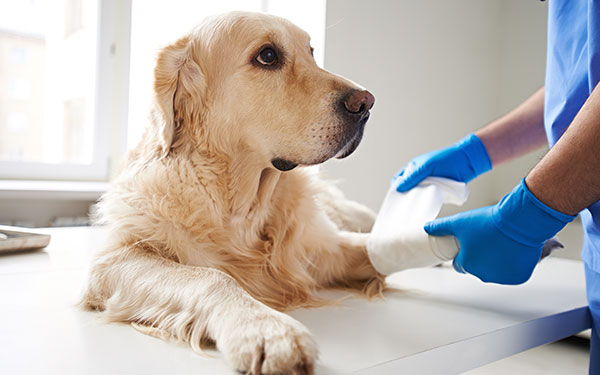Early one September morning, Gypsy presented to TVH after being bitten by a snake. Gypsy came to the hospital lying on her side and unable to move her body, her pupils were very dilated and she had increased respiratory rate and effort. Gypsy’s owners had identified a Brown Snake that had bitten her so we moved quickly to put her on a drip and started giving her antivenin intravenously to aid in neutralising the snake venom circulating in her body.
Following administration of the antivenin, we started supporting Gypsy through her long recovery by warming her up, giving her pain relief and making her as comfortable as possible. Pets recovering from snake bites often need quite intensive and prolonged nursing care to ensure that they make a full recovery. Gypsy spent 5 days in hospital here at TVH and made a full recovery. She is now back at home having fun with her family!
Our pets are usually curious and have natural hunting instincts so it is not uncommon for them to cross paths with a snake. Snakes hibernate and are generally inactive during cold weather so bites usually occur in the warmer months. Australia has some of the most venomous snakes in the world and all have various components to their venom in order to affect their prey. Venomous Australian snakes all have similar venom characteristics and these include:
1. Toxins that prevent the blood from clotting normally
2. Neurotoxins that stop nerve impulses being transferred to muscles enabling movement
3. Muscle toxins that stop muscle metabolism and result in muscle damage
4. Haemolysins which cause damage and rupture of red blood cells
The signs that your pet has been bitten by a snake depend on the type of snake and the amount of venom injected at the site. Our pets are often bitten around their muzzle, head or on their limbs. Signs that your dog or cat has been bitten by a snake include sudden weakness, dilated pupils, vomiting and/or twitching muscles.
If you suspect that your pet has been bitten you must immediately try to keep them as quiet as you can and immobilise them if possible. It is very important to seek veterinary help as soon as possible. If possible, try to identify the snake or get a description of its physical characteristics so that you can tell your vet as soon as you arrive at the clinic to enable the best possible treatment for your pet.
We sometimes see 2 – 3 snake bite victims a week! With summer just around the corner the snakes will be out and about so it is very important that you keep your backyard clean and clear of long grass and any rubbish that may be lying around. This will help to reduce the number of places that snakes can hide in!
